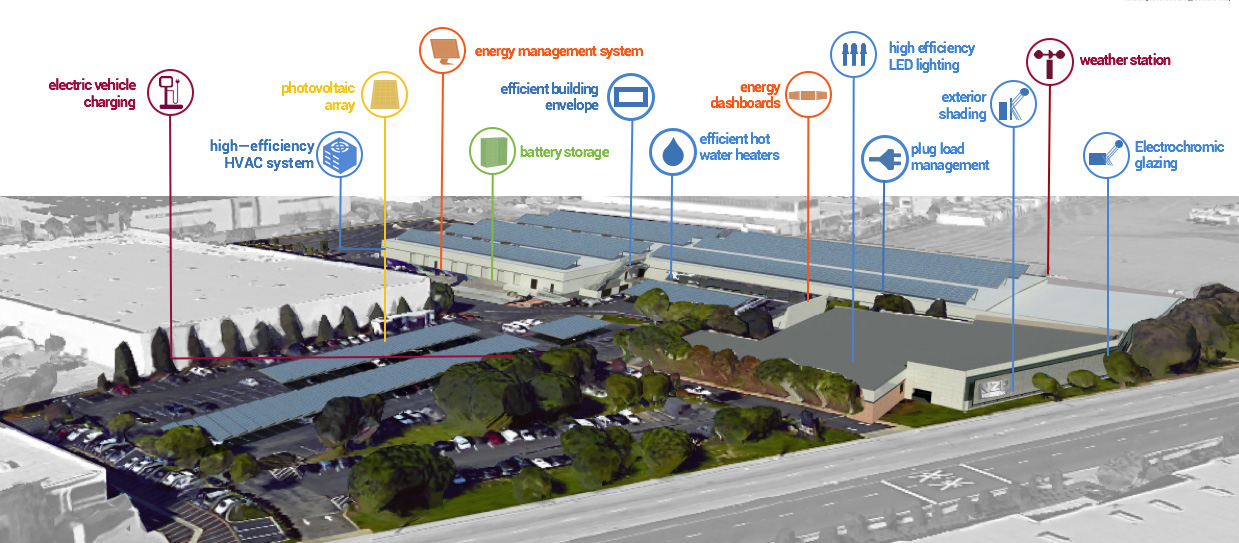The Net Zero Plus Electrical Training Institute is the largest net zero energy, commercial retrofit in the U.S. It is a national demonstration center for how net zero energy buildings should be designed, constructed, and operated. The NZP ETI’s unparalleled set of energy-efficiency design strategies and advanced energy technologies have reduced energy consumption more than 50% and produced 1.25 times more energy than the building consumes annually. Using stored excess energy, the NZP ETI can maintain 72 hours of operation during grid disruptions or natural disasters or provide energy back into the electrical grid during times of high demand. With these capabilities, the NZP ETI showcases how net zero buildings can contribute to improved emergency response solutions and a more reliable electrical grid.

The NZP ETI has been designed as a living laboratory to test, demonstrate, train, and bring-to-market emerging energy technologies. Through the living laboratory, we work closely with the building industry, facility owners and managers, manufacturers, and municipalities. The NZP ETI continually evolves with new technologies as the industry continues to grow under the new energy economy.
Building Design
- Exterior solar shading wall
- High Solar Reflective Index (SRI) roofing
- Electrochromatic glass
- High-efficiency heating and cooling systems
- High-performance insulation
- Passive ventilation with large, efficient ceiling fans
Advanced Technologies
- Utility-scale battery energy storage system
- 500 kW rooftop and parking shade structure PV solar array
- 144,000 square feet of LED lighting
- DC lighting capabilities
- Interactive dashboards with real-time building performance data
- Energy management system
- Advanced lighting and mechanical control systems
- Electric vehicle charging stations
- Smart grid and smart meter labs
- Advanced weather monitoring station
Project Benefits & Outcomes
- Projected 51% reduction in total electricity usage
- Average generation of 185,500 kWh/year more energy than is consumed
- Annual reduction of 520 metric tons of CO2
- Capability of 72 hours of off-grid operation
- 46% reduction in lighting consumption
- 63% reduction in heating consumption
- 60% reduction in cooling consumption
